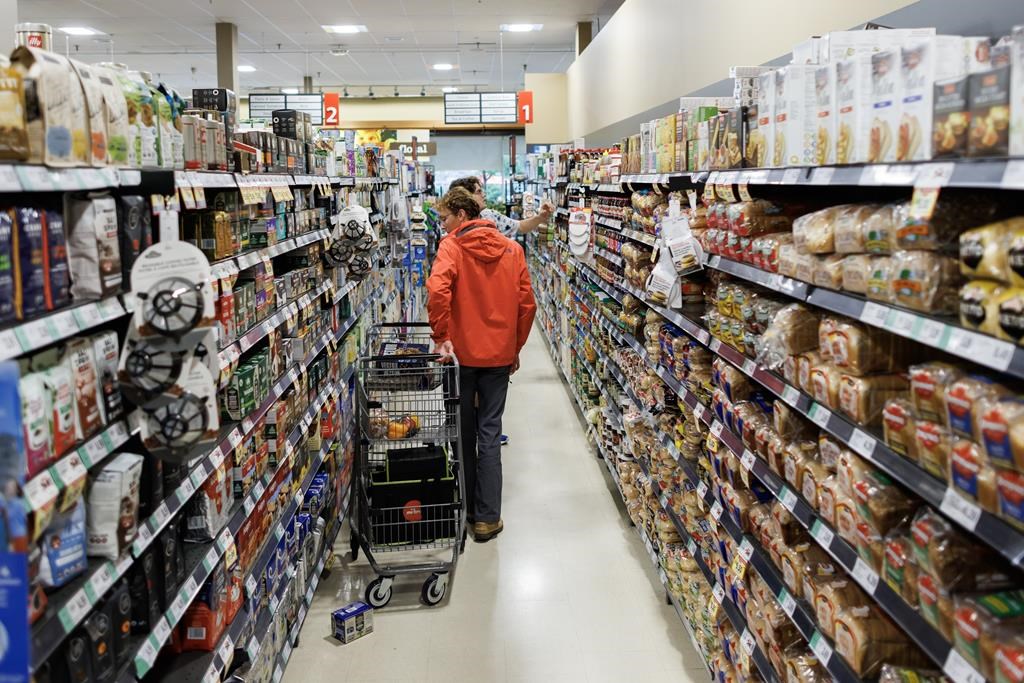Canada
Experts say help support grocers and famous rodents make forecast

Here is a roundup of stories from The Canadian Press designed to bring you up to speed on what you need to know today…
Ottawa should help domestic grocers: experts
Experts say instead of enticing a foreign grocer to come to Canada, Ottawa should look at ways to support smaller and regional grocery companies to boost competition.
Industry Minister François-Philippe Champagne said this week that he’s been reaching out to foreign grocery companies in the hopes they will come to Canada and help strengthen competition in the industry.
But Peter Chapman, founder of consulting firm SKUFood and a former Loblaw executive, says it’s not easy for a foreign chain to come to Canada.
The country’s relatively small population and spread-out geography make it a challenge for companies to build up a network of stores and distribution centres.
Gary Sands from the Canadian Federation of Independent Grocers agrees, adding that the grocery code of conduct being developed could help level the playing field for small- and medium-sized grocery companies.
Famous rodents to make Groundhog Day predictions
It’s Groundhog Day, again.
The beloved and occasionally controversial annual event that inspired the classic Bill Murray comedy film will see celebrity rodents make their spring predictions today.
In the prognostication method that favours folklore over science, a groundhog will emerge from its burrow and if it does not see its shadow, that means spring is just around the corner. If the furry animal sees its shadow and retreats, then we can expect six more weeks of winter.
High-profile furry forecasters include Nova Scotia’s Shubenacadie Sam, Quebec’s Fred la Marmotte and Ontario’s Wiarton Willie. They are set to wake from their winter slumber as the sun rises across the country and fulfil their duty.
Foreign Affairs Minister in Ukraine pushing for return of children
Foreign Affairs Minister Mélanie Joly is in Ukraine for a two-day visit focused on seeking the return of children abducted by Russia.
Joly arrives in Kyiv today and is set to meet with her Ukrainian counterpart, as well as President Volodymyr Zelenskyy.
The Canadian government has not hinted at any large funding announcement to top up the $9.7 billion that Ottawa has pledged for Ukraine through military, development and emigration programs.
Instead, Joly is set to launch an initiative with Ukraine that seeks global help in pressuring Russia to return thousands of Ukrainian children it deported from conflict zones, in violation of international law.
Interference inquiry to hear from safety minister
A commission of inquiry into foreign interference will hear from Public Safety Minister Dominic LeBlanc today, as it looks for ways to make as much information public as possible.
Commissioner Marie-Josée Hogue and her counsel will be able to see all of the highly classified materials filed with the inquiry.
But the government has signalled there are obstacles to making some sensitive documents public.
Federal lawyers say the public release of certain intelligence about interference threats from China and others would risk exposing vital secrets.
The discussions on national security and confidentiality of information will help set the stage for the commission’s next public hearings, likely to take place at the end of March.
Top court to rule on mandate letter access
The Supreme Court of Canada is set to release its ruling today on a bid by Ontario Premier Doug Ford’s government to keep his marching orders to cabinet ministers confidential.
The CBC asked, under the province’s freedom-of-information law, for the letters written to ministers after Ford won the 2018 election but the request was denied on the basis that releasing the documents would reveal the substance of cabinet deliberations.
The Information and Privacy Commissioner disagreed, ordering the government to disclose them, and two levels of Ontario courts have also sided with the CBC.
Ford’s government contends that cabinet confidentiality, candour and solidarity are fundamental to a system where responsible ministers collectively decide government policy, but the CBC has argued disclosure is key to an informed public and accountable government.
B.C.’s temperature swings put stress on animals
Recent wild temperature swings in British Columbia have raised concerns about the impact on some local animals’ health, and potentially their survival.
Temperatures in the Fraser Valley city of Abbotsford, for instance, have swung from a low of -15.4 C on Jan. 12 to more than 18 C this week, and one researcher says she’s particularly worried about the swing’s impact on bees.
University of British Columbia bee researcher Alison McAfee says the extreme highs and lows are particularly dangerous to bumblebee populations since “false springs” could make queens emerge prematurely from hibernation.
The quick change in temperatures is also tough on cattle, said BC Cattlemen’s Association general manager Kevin Boon.
He said ranchers in the province are keeping close attention to the weather and taking measures such as providing shelter and bedding, as well as adjusting feed to protect their herds.
—
This report by The Canadian Press was first published Feb. 2, 2024
The Canadian Press
